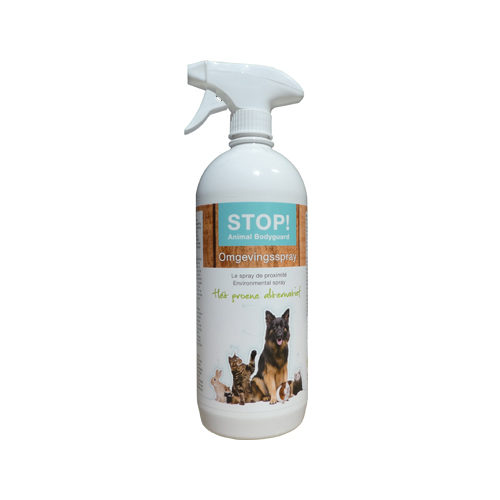Fleas can multiply enormously fast and lay hundreds of eggs in the fur. Unfortunately, if there is a flea infestation on the cat, there is also an infestation in the house. The eggs, larvae and pupae of the flea end up in the house on the baskets/floor/furniture. It is therefore very important to clean the house properly.
Ticks also occur in cats and look like flat little spiders. They are found everywhere and mainly in forests, dunes and moorlands. But cats can also become infected in a garden. Ticks live off blood and can sit on an animal for days unnoticed and suck themselves full. It is important to remove a tick as soon as possible. This way, there is the least chance of a possible Lyme disease infection. Ticks are around throughout the year, becoming active above 7°C Celsius.
What are the characteristics of a flea infestation?
There are several characteristics that indicate flea infestation. If your cat is suffering from fleas, it will scratch its fur much more than usual. As a result, the cat will also suffer more hair loss. Sometimes an infected cat will also have bald patches and scabs due to scratching and biting. You can order a flea comb on our site. With this, you can easily check the cat’s fur for fleas. If you are in doubt whether flea droppings are present, you can check this yourself. Put the contents of the flea comb on a wet paper (kitchen roll/handkerchief) and rub it out. If the brown/black grains turn red, these are flea droppings and there is a flea infestation. Flea droppings consist of aspirated, digested blood and discolour when wet.
Prevention is always better than treatment. Make sure that your dog is well-protected against fleas and ticks. We list all the types of flea and tick products you can choose from:
Spot on flea treatment
To effectively combat adult fleas, Vetsend offers a range of products including spot on flea drops like Frontline Combo Spot On for Cats.
Flea shampoos and sprays for cats
Use a shampoo, spray or powder to help combat a flea infestation. Please note that the sole use of these products only work for a short period of time. To ensure proper protection they should be used alongside drops, collars or tablets.
Environment spray
Fleas spread rapidly throughout their environment, which is why just treating your cat will not get rid of the infestation. It is important that you treat your cat’s direct environment, including where they sleep, furniture and the rest of the house that the cat comes into contact with. This will help maintain a house that is free of flea eggs and larvae and ensures the problem does not become a never-ending cycle. Try using Indorex Flea Spray to treat your furniture and surroundings.
Tick removal tools
A tick should be removed as quickly as possible. By using a tick remover such as the O’Tom Tick Twister, a tick remover or with the innovative tick gripper, removing ticks will be easier and safer. Do not anaesthetise the tick as this triggers it to release, potentially disease-infected, saliva into the cat’s bloodstream. Keep a close eye on your cat and the skin where the tick was removed. If you have any doubts about your cat’s health, contact your vet.




























